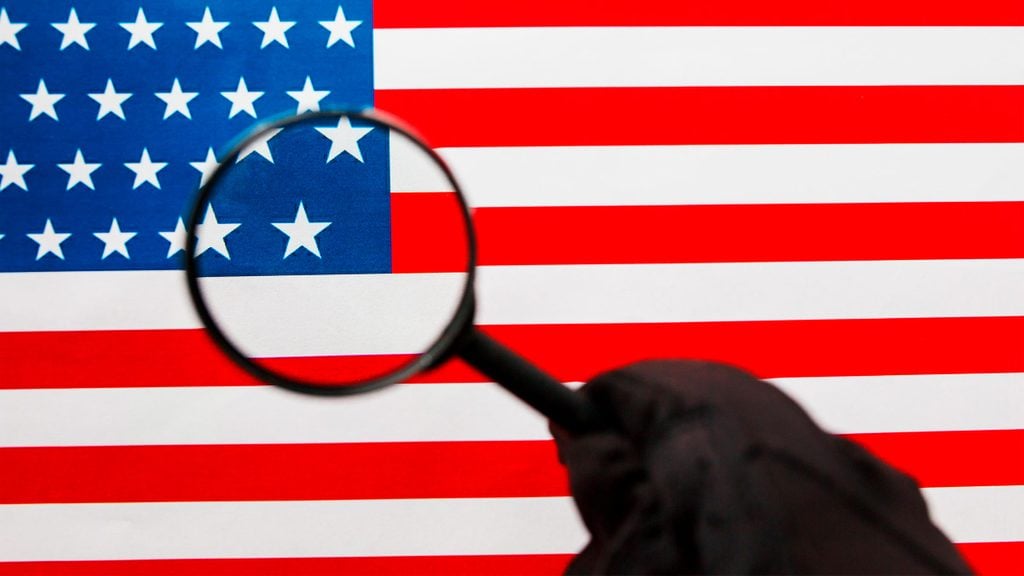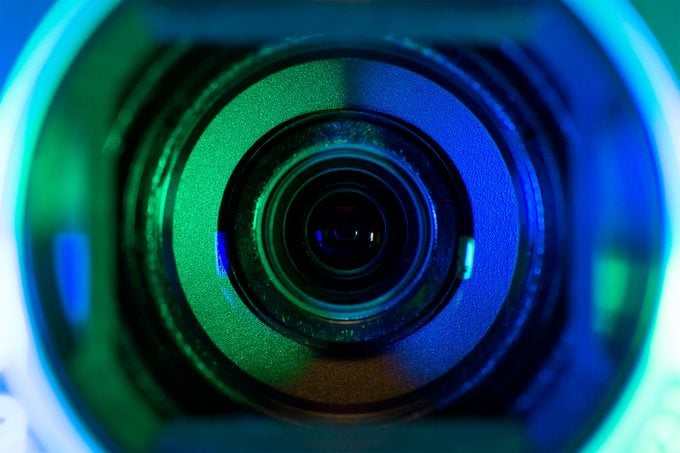9 Ways You Didn’t Realize the Government Could Be Spying on You
Updated: Jun. 17, 2022

Most of us understand, at least on some level, that the government is always watching. But just in case you forget that as you pursue your day-to-day activities, here are some reminders.
To some degree, the government always has an eye on you. That’s not a conspiracy theory; it’s a fact. And even though you might not be in its crosshairs, you’re definitely on its radar—in ways you might not realize. With technology making this easier than ever, your privacy isn’t all that private to agencies like the NSA, the CIA, and the FBI, not to mention local law enforcement. Here’s what you need to know about who might be spying on you—and when it’s happening.
You’re going about your daily life
Alexa seems to see all and know all, which is why you may not invite her into your house. But even if you don’t own this particular smart device, you’re still being watched and tracked. By 2022, it is estimated that more than 50 billion “things” will be connected to the Internet, from your smartphone to your computer to that pill bottle that automatically detects and notifies you when it’s time to get a refill. Sure, it’s convenient, but it only works because the “Internet of Things” collects data about you, including how many steps you take in a day and what you ordered for lunch. While that data is used commercially, you should also assume it’s made available to the government, says “data-veillance” expert Brian Hochman, PhD. The only question is whether the government chooses to use it—and how. Believe it or not, these 8 things in your home could be spying on you right now.
You’re taking prescription medication
Take two and your state government might call you in the morning. Prescription drug monitoring programs (PDMPs) are state-sponsored electronic databases that track controlled substances doled out by doctors. While having your meds monitored by the government may seem invasive, PDMPs are meant to help doctors identify when prescription drugs are being abused, according to the U.S. Centers for Disease Control and Prevention.
And that’s not the only government agency keeping track of this. In early 2019, the U.S. Food and Drug Administration (FDA) announced plans to build a large-scale database of information about prescription drugs, including who is taking them, who prescribed them, and how it’s all turning out. The purpose is to apply machine learning and predictive analytics in order to, among other things, identify communities that are more vulnerable to opioid abuse.
You bought (and used) a DNA-testing kit
Lots of people have embraced DNA testing to find out where their ancestors really came from and what diseases they may be at risk for. But when you share your DNA with a private testing company, you might also be sharing it with the government. While it’s unclear how far this actually goes on a regular basis, law enforcement has been able to successfully request privately obtained genetic information. In fact, that’s how the Golden State Killer case was finally cracked after being cold for decades. These are the other surprising facts about DNA testing you should know before you take a test.
You’ve driven by a surveillance camera
Local law-enforcement agencies use surveillance-camera footage to solve crimes. Plus, many jurisdictions use speed and red light cameras to help discourage traffic violations. Most of the time, this is a good thing. But sometimes, it goes awry, as it did when a man in China was ticketed for talking on his phone while driving…when he didn’t even have a phone in his hand. What did he have? An itchy face—and he was scratching it, an action that was mistaken for holding a phone. Here are 8 more places you didn’t know had hidden cameras.

You’re at the airport
When you fly by plane, you pretty much resign yourself to having your person, possessions, and past scrutinized by the TSA. But sometimes, the surveillance is much lower-tech—and it can be a total fail. That was the case when a father and son were detained by local police at the airport in Fargo, North Dakota. Why? Airport personnel noticed (erroneously) that one of them fit the description of a suspect in a domestic disturbance case. You may not know everything about the government–these are things you might misunderstand about impeachment.
You’ve tried to purchase a gun
When you purchase a firearm, it may well be for your personal security, but that purchase is far from a private matter. Sales records often enable law enforcement to identify the purchaser of a gun used in a violent crime. The same goes for background checks. While this common-sense safety measure may seem obvious, these secrets that the FBI doesn’t want you to know may surprise you. Want a say in your rights and privileges? These quotes about democracy will inspire you to vote.
You have a cell phone
Many of us joke about the things we “shouldn’t” be discussing on cell phones because they’re not secure. The truth is, phone surveillance generally requires a warrant, and to get one, law enforcement must have probable cause to believe a crime is being committed while using the phone. The same goes for your phone records. They aren’t necessarily up for government grabs, but if you’re suspected of committing a crime, law enforcement may be able to access them. In 2017 alone, the NSA was able to get data from more than 534 million phone calls and text messages. Also, just to be clear, your privacy might also be in danger you’re doing business with one of these online companies.
You’ve got a webcam
You know those little devices you can purchase for a couple of bucks to cover up your webcam? There is literally only one reason why you shouldn’t go out and buy one right this very minute, and it’s if you already have one (or you’re covering your camera with a little piece of duct tape). In addition to hackers who manage to pull images of people through their webcams (in varying states of undress and otherwise), the government has been known to spy on ordinary citizens through their webcams. Not convinced yet? Consider that former FBI director James Comey has admitted to covering his own laptop’s webcam.
You visited the U.S. government’s website to see if the government might be spying on you
Oh, the irony. In researching this story, we happened to head on over to the U.S. government’s official website, USA.gov., and there’s a reason we’re not linking to it here. When you click on that particular site, the very first thing you see is a notice that whenever you visit USA.gov, the U.S. government may record that fact, along with your IP address, the website you were on right before you linked to USA.gov, any search words you might have used, what you clicked on, and the browser and operating system you were using.
So that you don’t have to click on it yourself, here is the exact text of the notice:
When you visit USA.gov, we may store some or all of the following: the Internet protocol address from which you access USA.gov, date and time, the name of the web site from which you linked to USA.gov, the name of the file or words you searched, items clicked on a page, and the browser and operating system used.
Well, apparently, we just took one for the team. Our advice: Don’t try this at home. And don’t miss these red flags that someone may be spying on your computer.



